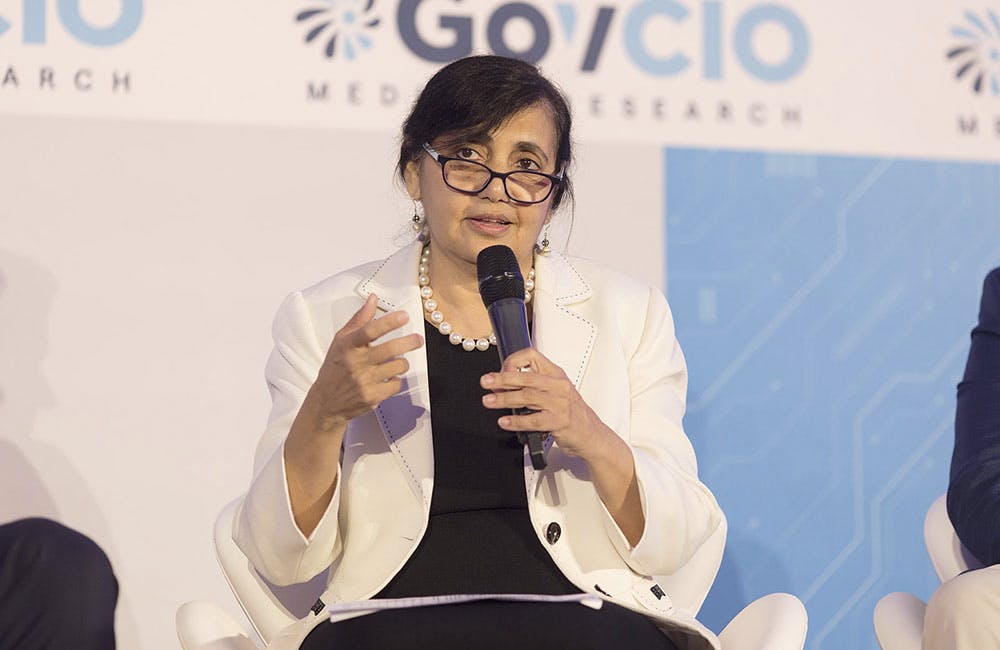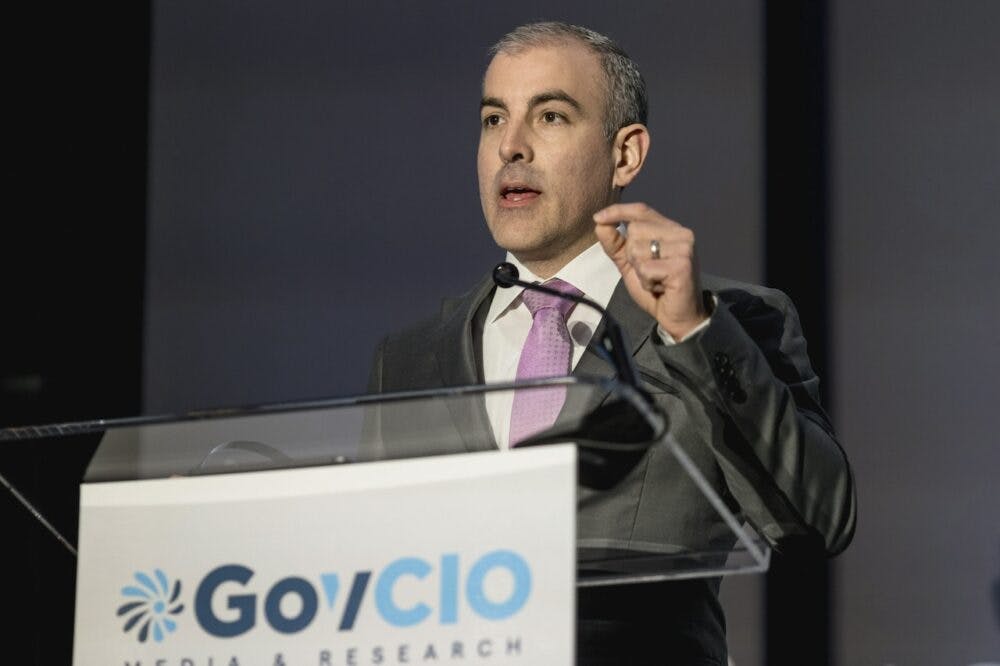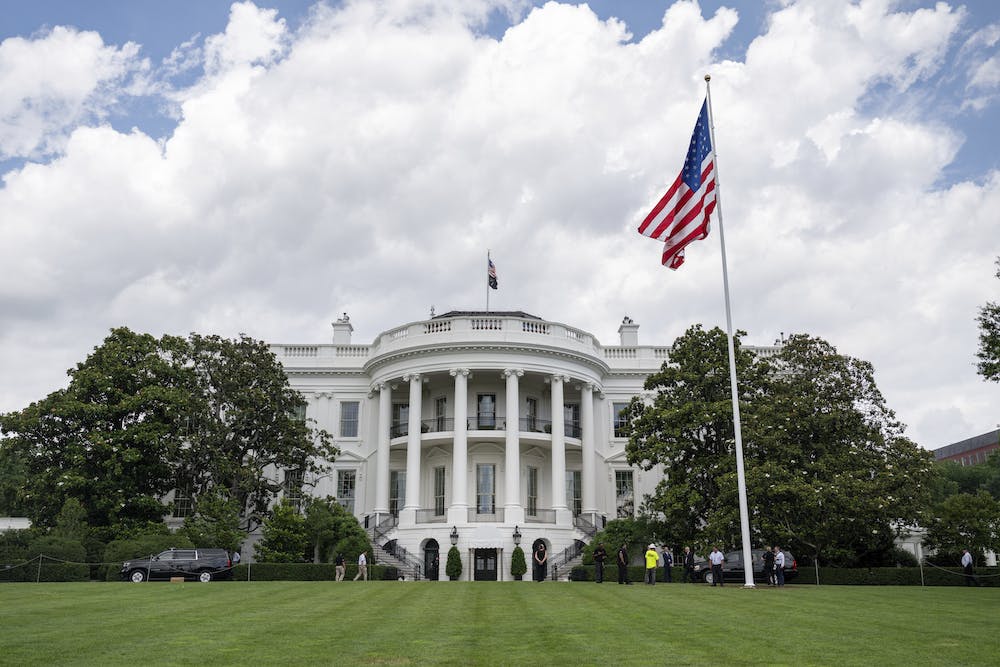DOD’s Replicator Drone Program Will Select First Tranche Soon
Deputy Secretary Kathleen Hicks spoke about the new program to build autonomous drones at speed and scale.

The Defense Department will soon make its first selections for a program designed to acquire and produce all-domain attributable autonomous systems at rapid scale and speed, according to Deputy Secretary Kathleen Hicks.
The agency created the program, called Replicator, in August and is one aspect to the department’s growing priorities in the Indo-Pacific region to counter threats from China. Hicks said selections for the program will look at all domains, with a focus on making the biggest difference in a two-year window.
“Our goal here is an operational goal, which is in addition to the acquisition cycle, and that operational goal is to create dilemmas for China, and any other competitor who might look at this approach and try to undermine it,” Hicks said at a Defense Writers Group session.
Hicks has said that Replicator will source itself from existing funding and will avoid creating a new level of bureaucracy within the department. In fact, Hicks said that Replicator is designed to skip bureaucratic red tape. The goal of Replicator is to develop autonomous drones as a specific counter to China’s superiority of scale in the Indo-Pacific region.
“We have multiple valleys of death in the department — one of the most vexing is that scaling production,” Hicks said. “We also know we have a challenge with the commercial sector looking at DOD as a strong and capable partner that can work within the two-year appropriations process, not just wait every two years to make major new investments.”
Replicator’s first tranche will be focused on accelerating systems that only need an additional source of funding or removal of barriers to be successful, with expectations that less mature programs could receive funding in subsequent tranches of selection.
“We’ve shown we can take years off of programs by just taking the bureaucracy out. Being problem solvers, solving their own problems. That’s what we’re doing with Replicator. We’ve also picked an area that is very important to Indopacom and other programs that will really move the needle with very low dollars,” she added.
Hicks said the programs to receive funding will be shared with Congress. Hicks added that the program’s impact on the budget will be miniscule and estimated the program to cost less than 0.5% of the budget, with the focus on cheaper near-term solutions.
This is a carousel with manually rotating slides. Use Next and Previous buttons to navigate or jump to a slide with the slide dots
-

Generative AI Demands Federal Workforce Readiness, Officials Say
NASA and DOI outline new generative AI use cases and stress that successful AI adoption depends on strong change management.
6m read -

The Next AI Wave Requires Stronger Cyber Defenses, Data Management
IT officials warn of new vulnerabilities posed by AI as agencies continue to leverage the tech to boost operational efficiency.
5m read -

Federal CIOs Push for ROI-Focused Modernization to Advance Mission Goals
CIOs focus on return on investment, data governance and application modernization to drive mission outcomes as agencies adopt new tech tools.
4m read -

Fed Efficiency Drive Includes Code-Sharing Law, Metahumans
By reusing existing code instead of rewriting it, agencies could dramatically cut costs under the soon-to-be-enacted SHARE IT Act.
5m read -

AI Foundations Driving Government Efficiency
Federal agencies are modernizing systems, managing risk and building trust to scale responsible AI and drive government efficiency.
40m watch -

Navy Memo Maps Tech Priorities for the Future Fight
Acting CTO’s memo outlines critical investment areas, from AI and quantum to cyber and space, as part of an accelerated modernization push.
5m read -

DOD Can No Longer Assume Superiority in Digital Warfare, Officials Warn
The DOD must make concerted efforts to address cyber vulnerabilities to maintain the tactical edge, military leaders said at HammerCon 2025.
4m read -

New NSF Program Cultivates the Future of NextG Networks
The agency’s new VINES program looks to tackle key challenges like energy efficiency and future-proofing wireless tech.
21m watch -

DHA CDAO Spearheads Master Data Catalog to Boost Transparency
Jesus Caban plans to boost DHA's data maturity through a new master data catalog, governance frameworks and inventory of tech tools.
5m read -

Trump Orders Spark Government-Wide Acquisition Overhaul
As Trump pushes for a faster, simpler procurement system, agencies are leveraging AI and adapting strategies to meet new requirements.
5m read -

Inside Oak Ridge National Lab’s Pioneer Approach to AI
Energy Department’s Oak Ridge National Lab transforms AI vulnerabilities into strategic opportunities for national defense.
22m listen -

A Look at Federal Zero Trust Transformation
Recent developments from CISA and DOD show how government is advancing zero trust quickly.
20m read
















